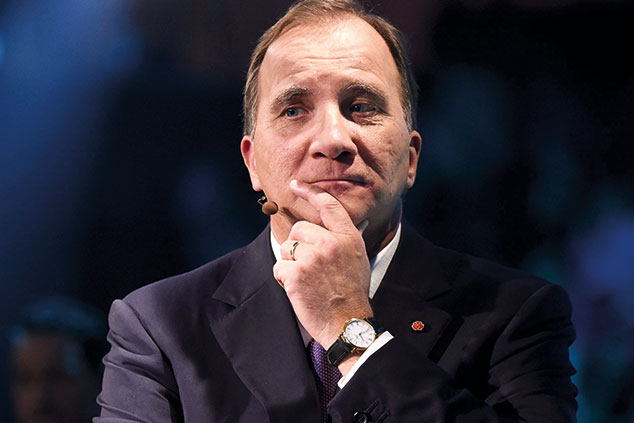
“Despite the tone of some reports in foreign media in the run-up to Sunday’s election, Sweden has not actually been taken over by fascist hordes,” says Nicholas Aylott in The Independent. While the share of the vote achieved by the far-right Sweden Democrats party was five percentage points higher then in 2014, its 17.6% “was some way below what some polls, at least, had predicted”. Instead of competing to come first, it was pushed into third place by the Moderate Party. Since the seven major parties “have pledged not to negotiate directly with it about anything”, there is no chance of it getting near power.
Don’t be so sure, says The Guardian. It’s true that the far-right party “was rejected by an overwhelming majority”. But the decline in votes for the ruling Social Democrats means that the Sweden Democrats and its leader Jimmie Åkesson now hold the “balance of power”. So despite pledges from the other parties to shun it, there is a growing argument that it will have to be brought into open politics sooner or later. In any case, the “nativist passions” that represent the core part of the Sweden Democrats’ appeal “are difficult for politicians to contain once unleashed”.
A struggle to form a government
Despite coming top, the Social Democrats may find that their victory turns out to be pyrrhic, says The Times. The 28% of the vote that the party received was its lowest share since 1908. The results leave the government in an extremely precarious position. One possible solution is that Stefan Löfven, the prime minister, “could attempt to form a grand coalition with the centre-right Moderates, but this would merely boost the far right and the far left”. As a result, “no one is betting against the Sweden Democrats eventually entering a centre-right coalition or at least propping up a minority government run by mainstream conservatives”.
“Some expect the coalition talks to be so difficult that either the Social Democrats or the main centre-right Moderate party could be forced to rule as a single-party minority government,” says Richard Milne in the Financial Times. “The biggest test of post-election pacts and alliances will be whether any party can command support for its spending plans,” especially during the crucial budget votes in December. There’s also the worry that a failure to reach an agreement means that “the nationalists could be emboldened in the next vote in 2022”.
Losing the poll, winning the argument
Note too that the Sweden Democrats lost the election, but won the argument, says Fraser Nelson in The Spectator. The other parties only beat it because they persuaded a good many Swedes that they don’t need to vote for Åkesson to have their concerns taken seriously. The country’s famously narrow “opinion corridor” widened quite a lot during the campaign as “every party leader had stern words to say about the immigration problem and related crime”. The lesson is that the only way that populists across Europe can be “kept firmly at bay” is for mainstream parties to been seen to be “getting the message and responding to pressure”.